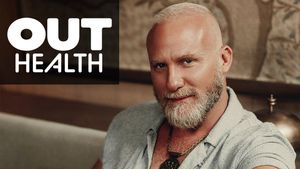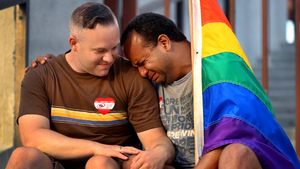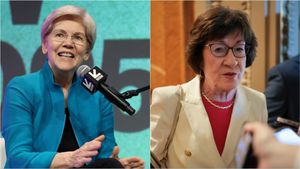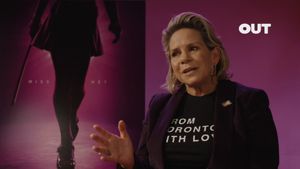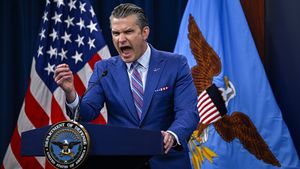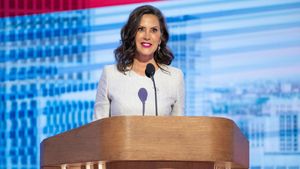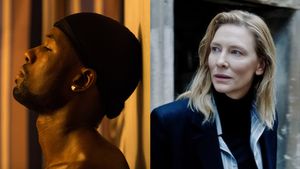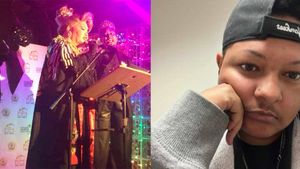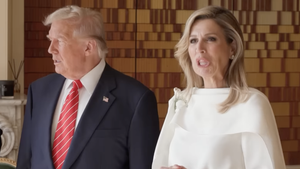(CNN) — Britons are more likely to say their views of the monarchy have worsened than improved over the past decade, according to a CNN poll, suggesting that King Charles III is facing serious challenges on the eve of his coronation, when he will be officially crowned head of an institution that has endured years of internal upheaval.
More than one-third of UK adults (36 percent) say their opinion of the family has become more negative than it was 10 years ago, the survey by polling company Savanta found. Queen Elizabeth II's death last September brought to an end an era defined by the late monarch's steadfast dedication to duty, amid rapidly changing times.
Just 21 percent say their views on the royal family have gotten more positive over the past decade, with another 41 percent saying their overall opinion has stayed the same. And three in 10 say they have become less interested in news about the family over that time, while 22 percent say they have grown more interested. A little less than half say that their interest level hasn't changed.
Most Britons say they plan to take part in at least one event this weekend related to the coronation, which is set to be a magnificent display of tradition and pageantry.
But the public celebration of the new King comes as at a time when decades of demographic, religious and societal change have resulted in shifting attitudes to the monarchy, following the longest interlude between two coronations in British history.
Generational divide
UK residents are split in their level of interest in the coronation, the polling suggests, with broader views about the royal family and its members marked by generational divides.
Half of UK adults say they're interested in the coronation, with only a fifth describing themselves as "very interested."
Most say they plan to participate in at least one activity surrounding the festivities this weekend, with 40 percent planning to watch the coronation ceremony, 28 percent to watch the coronation concert on Sunday, 14 percent to attend a street party or other community event, and 7 percent to volunteer as part of the "Big Help Out" initiative. Just over a third plan to opt out of coronation-related events entirely.
Those age 55 and older are roughly 10 percentage points likelier than younger adults to say they're interested in the coronation. They were most likely to say they'll watch the ceremony, with about half planning to tune in.
By contrast, 37 percent of those age 35-54 and just 31 percent of those younger than 35 say they intend to watch the event, as an increasing number of young Britons express their indifference to or dislike for an institution they say has no relevance in their lives.
Ahead of the Queen's Platinum Jubilee celebrations last June, CNN spoke to young people in the UK who cited factors from British colonialism to a lack of diversity as reasons for feeling disconnected to the monarchy.
Adults younger than 35 are more likely than their older counterparts to say they're planning to participate in the volunteer effort. Women are 10 points likelier than men to say they plan to watch the coronation concert, and 9 points likelier to say they'll watch the ceremony.
More broadly, the poll finds the UK public reporting declining interest in — and opinions of — the royal family over the past decade, a period during which the institution has been embroiled in a series of controversies that have threatened the family's popularity.
In 2019, Prince Andrew stepped back from his royal duties over his ties to disgraced financier and convicted pedophile Jeffrey Epstein. A day after a judge ruled a sexual abuse civil lawsuit filed by Virginia Giuffre against Andrew could proceed, Buckingham Palace announced that he had been stripped of his military titles and charities. Andrew later settled the lawsuit.
The royal institution has also faced serious allegations of racism over the years. Meghan, Duchess of Sussex, said that pleas over her mental health were disregarded and that she was made to feel ostracized while she endured racist treatment from the British press during her time as a working royal.
In January, the family carried on with public duties as they worked to repair the fallout from Prince Harry's explosive memoir, in which he made incendiary accusations against a number of senior royals.
Such controversies may have helped shape public attitudes toward the institution.
CNN's polling suggests UK adults are closely divided on whether or not they currently see the royal family as role models: 44 percent say that the royal family isn't a good source of leadership and guidance to people like them, while 41 percent say they are, with another 16 percent unsure. More than half (55 percent) of UK adults younger than 25 say that they don't consider the royal family a good source of leadership and guidance, a view shared by just 36 percent of those aged 55 or older.
But not all members of the royal family are viewed in the same light. William, Prince of Wales and Catherine, Princess of Wales are the best regarded: 62 percent of UK adults hold a favorable view of both, with just 14 percent and 13 percent, respectively, viewing them unfavorably, and the remainder neutral or expressing no opinion. Just less than half have a favorable view of King Charles, with 23 percent rating him unfavorably.
Views of Queen Camilla are more split, with 34 percent rating her favorably, 32 percent unfavorably, and 31 percent saying their view is neither positive or negative. And opinions of Prince Harry and Meghan are underwater, with 52 percent and 56 percent, respectively, rating them unfavorably, and fewer than 3 in 10 expressing positive views of either.
Within the UK public, opinions on specific royals differ sharply by age. Older adults are substantially more positive than younger adults toward King Charles — almost two-thirds of those older than 55 view him favorably, compared with about a third of those younger than 35.
The same pattern holds true for opinions of Queen Camilla, who has a 44 percent favorability rating among those age 55 and older and a 23 percent favorability rating among under-35s, and for both the Prince of Wales (78 percent vs. 46 percent) and Princess of Wales (78 percent vs. 44 percent).
By contrast, the age dynamic is reversed for the Duke and Duchess of Sussex: 42 percent of UK adults younger than 35 hold a favorable opinion of Prince Harry, compared with just 13 percent of those 55 and older, and 40 percent in the youngest group view Meghan positively, compared with 10 percent among the oldest group.
The poll was conducted on March 24 through 26 among a random sample of 2,093 UK adults aged 18 and older. Surveys were conducted online, and weighted to be representative of the UK by age, sex, region, and social grade. Results for the full sample have a margin of sampling error of plus or minus 2.2 percentage points; it is larger for subgroups.
Sign up for CNN's Royal News, a weekly dispatch bringing you the inside track on the royal family, what they are up to in public and what's happening behind palace walls.
The-CNN-Wire
™ & © 2023 Cable News Network, Inc., a Warner Bros. Discovery Company. All rights reserved.





